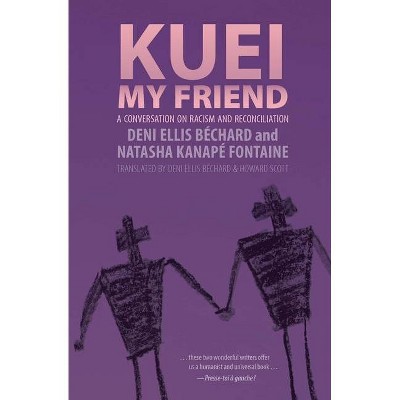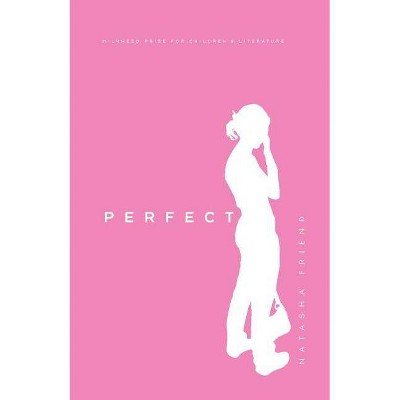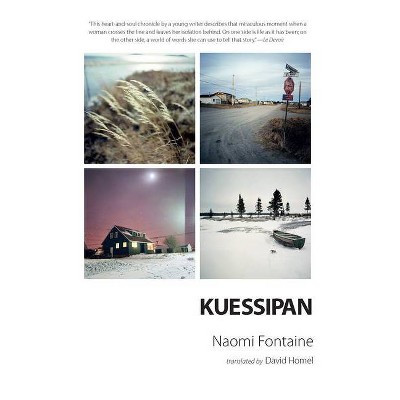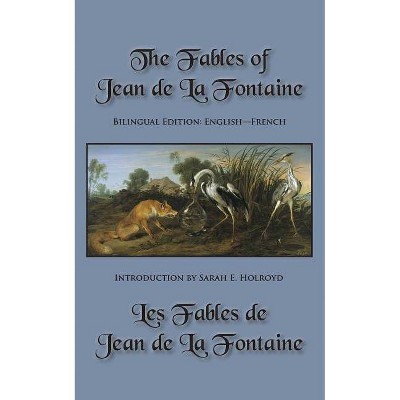Kuei, My Friend - by Deni Ellis Béchard & Natasha Kanapé Fontaine (Paperback)

Similar Products
Products of same category from the store
AllProduct info
<p/><br></br><p><b> About the Book </b></p></br></br>A literary and political encounter between an Innu poet and Quebecois-American novelist who engage in a taboo-free conversation about racism.<p/><br></br><p><b> Book Synopsis </b></p></br></br>Idle No More, Truth and Reconciliation Commission, National Survey of Missing or Murdered Aboriginal Women ... How can we co-exist if our common history is shame, injury, and anger? How can we counteract the misunderstandings of the other that lead to contempt? How can we make whites realize the invisible privilege that results from historical domination and the impact of cultural genocide on Indigenous peoples? In an attempt to open a dialogue, Kanape Fontaine and Béchard use personal stories to understand words and behaviors that are racist or that result from racism. In this epistolary exchange, Kanape Fontaine recounts her discovery of the residential schools, her obsession with the Oka Crisis, and life on the reserve in Pessamit, Quebec; Béchard talks about his father's racism, the segregation of African-Americans, and his identity as a Quebecois living in the English-speaking world. By sharing honestly even their most painful memories, these two writers offer a humanist and universal book on the relationship to the other and the respect for difference.<p/><br></br><p><b> Review Quotes </b></p></br></br><br>Acclaim for the French edition "Racism is always based on simplification," writes author Deni Béchard. Can simplification also help to counter it? Poet Natasha Kanape Fontaine and Béchard make the bet that yes, by signing with four hands Kuei, I greet you. This conversation on racism is organized as an exchange of 26 letters. From the beginning it was targetted mainly at young people and high school and college students, since "it is through them that society can change." Two writers who seek to answer by the words, excluding literature, to the shortcomings of education.<br><p/><br></br><p><b> About the Author </b></p></br></br>Deni Ellis Béchard is the author of Vandal Love (Commonwealth Writers' Prize for Best First Book); Of Bonobos and Men (Nautilus Book Award for investigative journalism and Grand Prize winner); Cures for Hunger, a memoir about his bank-robber father (selected as one of the best memoirs of 2012 by Amazon.ca); and Into the Sun (Midwest Book Award for literary fiction and selected by Radio Canada as one of 2017's Incontournables and one of the most important books of the year to be read by Canada's political leaders). Béchard has reported from India, Cuba, Rwanda, Colombia, Iraq, the Congo, and Afghanistan. He has been a finalist for a Canadian National Magazine Award and has been featured in Best Canadian Essays 2017, and his photojournalism has been exhibited in the Canadian Museum of Human Rights. His articles, fiction, and photos have been published in newspapers and magazines around world, including the LA Times, Salon, Reuters, The Guardian, Patagonia, La Repubblica, The Walrus, Pacific Standard, Le Devoir, Vanity Fair Italia, The Herald Scotland, The Huffington Post, The Harvard Review, The National Post, and Foreign Policy Magazine. His website is denibechard.com Born in 1991 in Baie-Comeau, Natasha Kanape Fontaine is Innu, originally from Pessamit on the North Shore of Quebec. A poet-interpreter, actress, visual artist and activist for Aboriginal and environmental rights, she lives in Montreal. One of the most important voices in Quebec. Her first collection of poems, "Do not enter into my soul with your shoes" (Éditions Mémoire d'Encrier, 2012), was a critically acclaimed award for his first identity questions. 2015. The finalist of the Prix Émile-Nelligan 2015, his second collection Manifeste Assi (Mémoire d'encrier, 2014), is the song of the earth, which suffocates under the exploitation of natural resources, including the tar sands In Alberta. In February 2016, she published Bleuets et apricots (Memoir d'encrier), a third book of poetry which carried "the discourse of the indigenous woman who returns to life to overthrow history". Natasha Kanape Fontaine is part of the resurgence of today's Indigenous youth. A spokeswoman for the Quebec branch of the Idle No More movement, she is working to develop the "Poetics of Relationship to the Territory" in philosophy. Natasha Kanape Fontaine is a guest poet, notably in Belgium, Haiti, France, Germany, and Scotland. In 2017, she will be representing the Innu and Quebec at the Festival of Ethnic Minorities in Tibet. Her artistic and literary approach tends to bring together divergent peoples through dialogue, exchange, sharing of values, through the "tanning of the skins", a metaphorical way of scratching the imperfections of thoughts and consciousnesses. With poetry, she cradles the environment and begins a healing process with him. Natasha Kanape Fontaine fights against racism, discrimination, and colonial mentalities through speaking and poetry. Everything to ensure the trace, in the process of decolonization, for future generations.
Price History
Price Archive shows prices from various stores, lets you see history and find the cheapest. There is no actual sale on the website. For all support, inquiry and suggestion messages communication@pricearchive.us




















